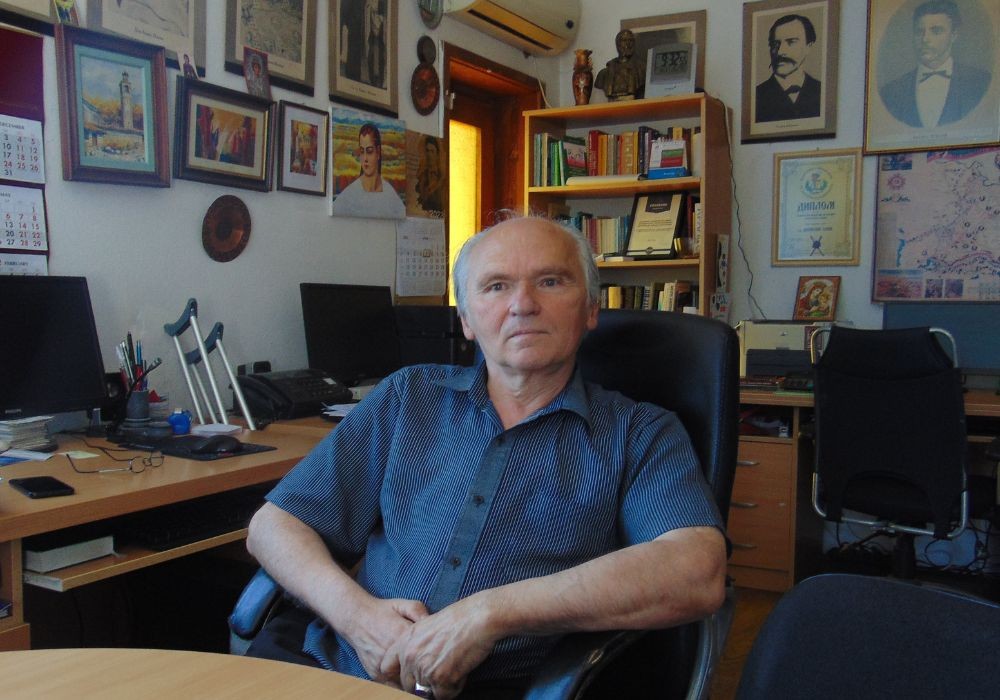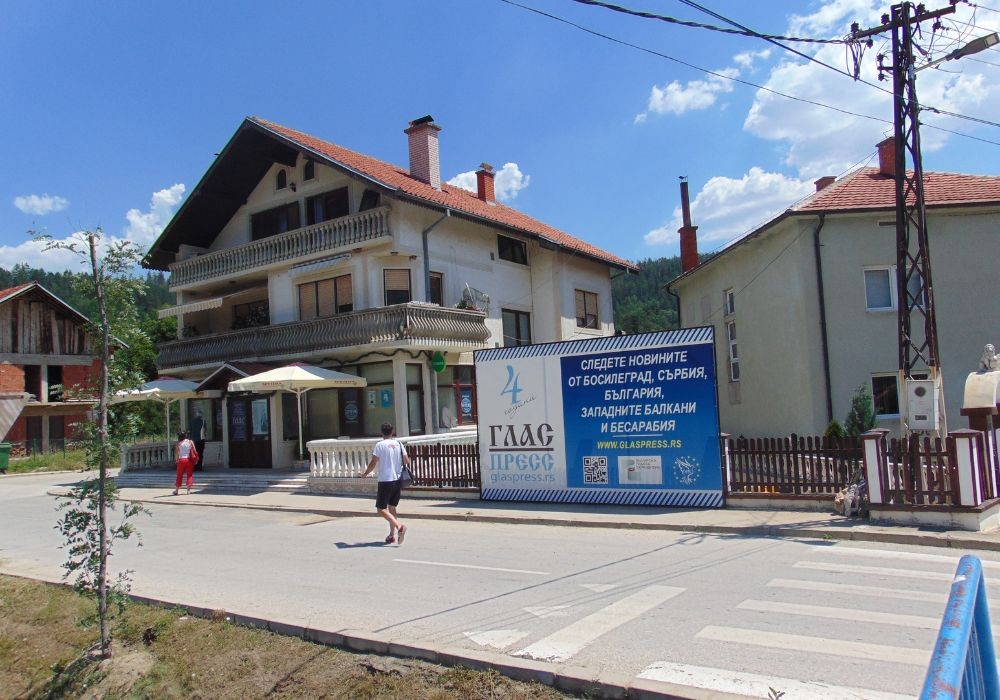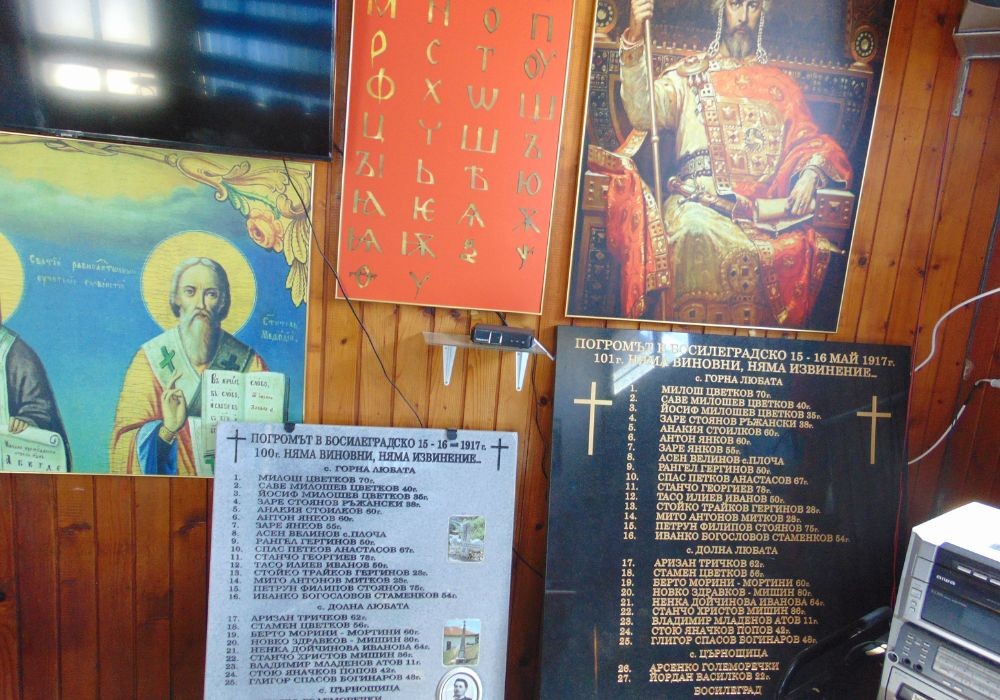Bulgaria has opened 11 state cultural institutes abroad /Berlin, Bratislava, Budapest, Warsaw, Vienna, London, Moscow, Paris, Rome, Skopje and Prague/, which are guided methodologically and supported financially by the Ministry of Culture and their activities are carried out in compliance with bilateral intergovernmental agreements. This is not the case with the Bulgarian cultural and information centers in the towns of of Bosilegrad and Tsaribrod in Serbia. According to local legislation, they operate as non-governmental organisations. The chairman of the center in Bosilegrad, Ivan Nikolov, compares their activity to that of the community centers from the Bulgarian Revival. According to him, their work is hampered by very slow Europeanisation of Serbia, which also slows down the opening of the borders and the development of the region. There is also no dialogue between the two neighboring countries about the Bulgarian community in the area of the so-called Western Outlands. As a result of migration, the population in Bosilegrad has decreased from 30,000 to about 6,000 people for a century.

"We created the cultural and information center here and with its work we try to preserve the Bulgarian spirit, the Bulgarian language above all, as well as to encourage people to see a new style and way of behavior and we are pleased that the young people are increasingly aware of it and show interest, Ivan Nikolov, chairman of the Cultural and Information Center says.
Mr. Nikolov told Radio Bulgaria that they have some minimal support from the Bulgarian state, but they work with many Bulgarian institutions, such as the Sofia Municipality, community centers, museums, galleries and media. He expresses regret that there hasn’t been a single completed project under the cross-border cooperation program.
"Yes, this is a serious problem. Our administrative and personnel capacity, from the point of view of the specialists needed, is really limited,” Nikolov pointed out. “What you see here are one or two offices with two computers in each of them. But this is not enough to start an investment project. Not to mention that investment projects must also have the support of the local authorities. There is still suspicion about every single euro that comes from Bulgaria or from Europe."

The Bulgarians in Bosilegrad, unlike their compatriots in Tsaribrod, are far from a main road. They cannot go to work in Sofia every day and return in the evening. The Bulgarian regional town of Kyustendil, which is close to Bosilegrad, cannot offer many jobs and there is not even a regular bus line. As an alternative to the so-called daily migration, the people of Bosilegrad want to develop an ethnographic tourist complex that includes a school dating back to 1832 and the church in the village of Izvor, which dates back to 1833.
"It is a very interesting church. There is only one more church in Bulgaria with similar architecture - in Bansko. If an ethnographic center is created in this area, this could significantly increase the tourist flow. When people move, prerequisites for economic development emerge,” Ivan Nikolov says. “Unfortunately, Bosilegrad is in the grip of international mining companies, which pollute the environment terribly and the region becomes impoverished.
Nearly all graduates of the Bosilegrad High School continue their education in Bulgarian universities - the head of the Cultural and Information Center in Bosilegrad also points out. Most students later find work in Bulgaria. This changes the demographic situation even more. But, according to Nikolov, at the beginning of the 21st century people cannot be left to live in misery and that's why he is pleased that young people find professional realization in Bulgaria. He also says that the lack of Bulgarian translation for the mandatory Serbian textbooks is a big problem hampering teaching of the mother tongue. However, he is optimistic about Bulgarian self-awareness in the region:

"Despite every obstacle, young people in Bosilegrad know Bulgarian language, although with this admixture of the dialect they use when they speak to each other. But that alone is not enough. In order to strengthen the Bulgarian national self-awareness, in addition to the Bulgarian language, they must have knowledge of Bulgarian history, culture, and geography. Most of the people in Bosilegrad already have Bulgarian citizenship and this creates prerequisites for national self-esteem and inclusion in the Bulgarian cultural space."
Author: Ivo Ivanov
Photos: Ivo Ivanov
English version: Alexander Markov
The so-called Seal of Biliteracy was created in 2011 in the US state of California with the idea that in the conditions of a globalized economy and relationships, it is not possible for a person to develop their full potential by..
Fertility Europe , the pan-European organization that represents patient associations focused on infertility issues, has announced the start of the 9 th European Fertility Week 2025, 3-9 November. The campaign is taking place throughout Europe..
Today, in the Radio Bulgaria studio, we welcomed Helmut Matt – a writer, radio journalist and poet, who has maintained a special connection with Bulgaria for many years. In his book "Bulgarian Impressions" and in his numerous radio broadcasts, he..
Everyone knows that as soon as temperatures start going down it is pickle-making season. Making preserves at home is a time-honoured and widespread..
Minister of the Environment and Water Manol Genov has granted two centuries-old trees – each of which approximately 200 years old – protected status,..

+359 2 9336 661
